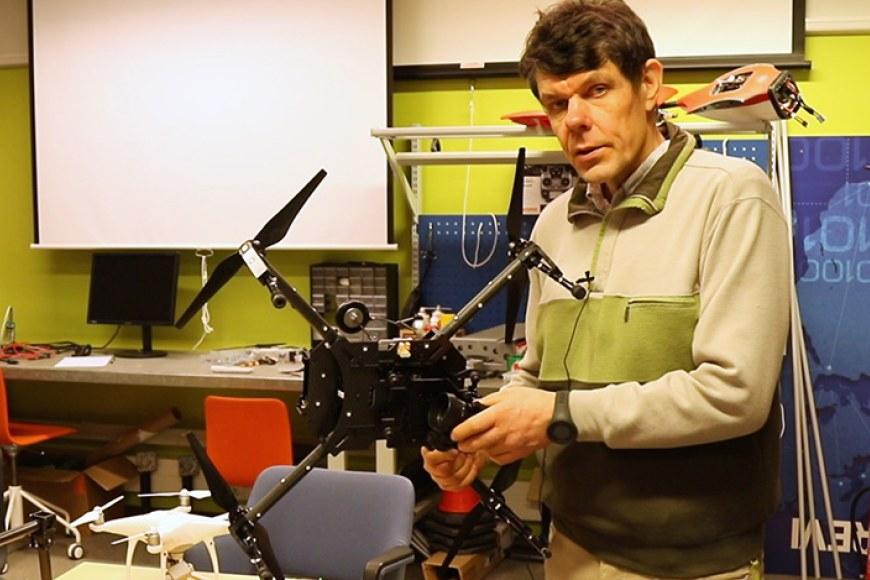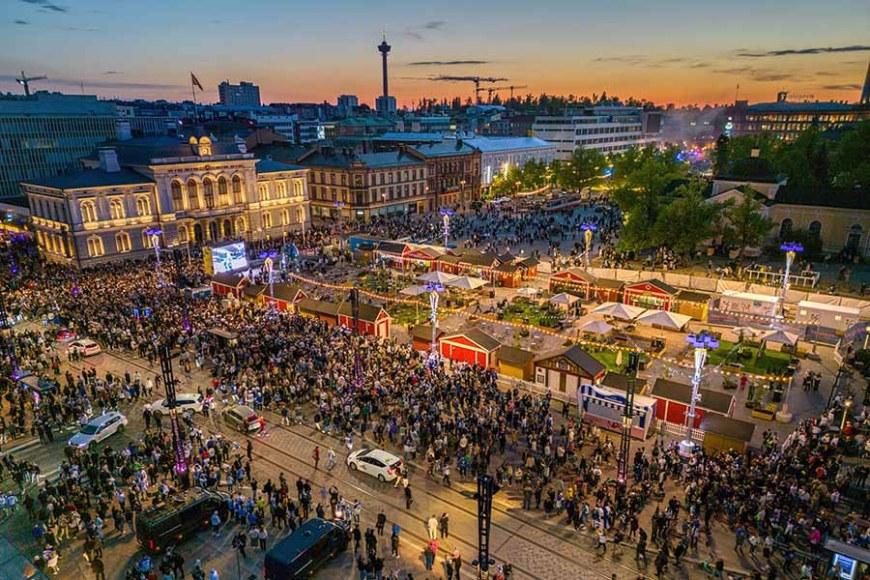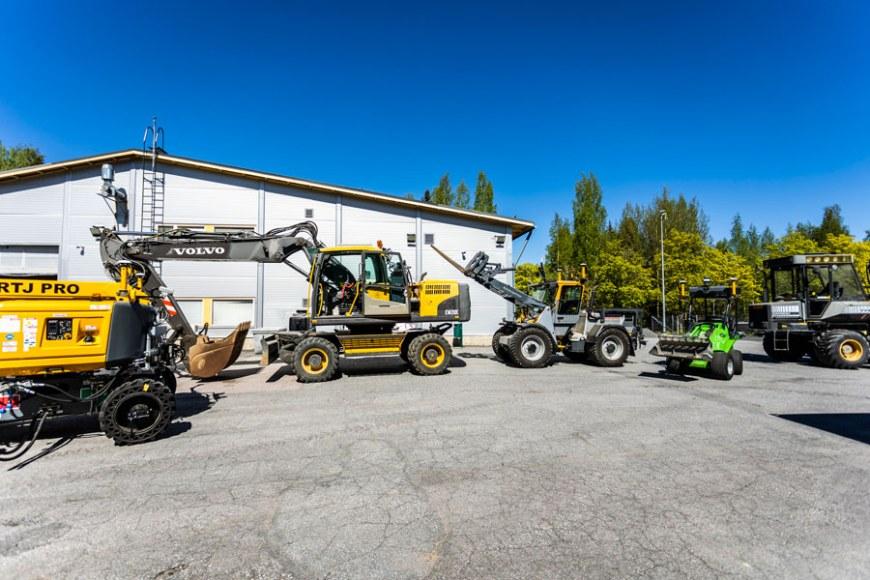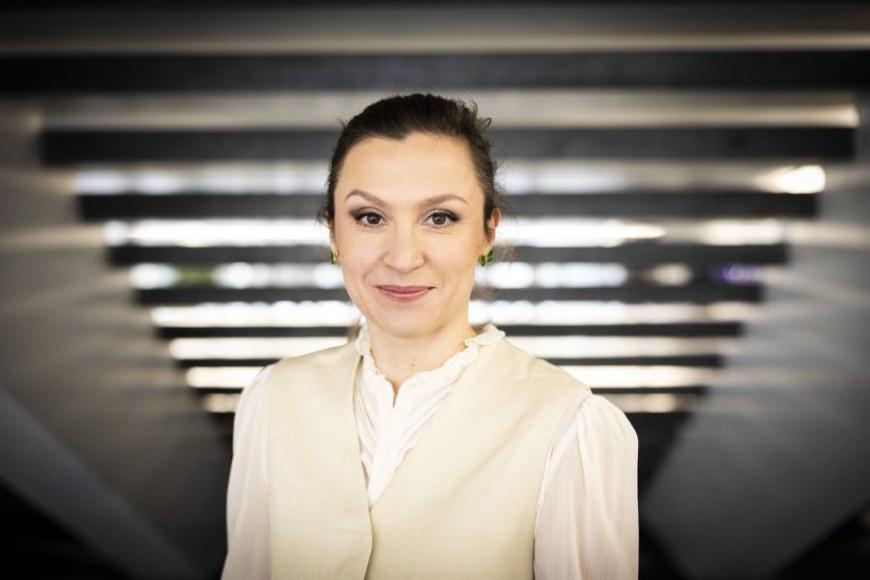Nordic Drone Event 2020 buzzes around drone technology and electrical flying

The innovation of drones has come a long way since the First World War when the first pilotless vehicles were built. Improved drone technology combined with revolutionary software has given both universities and companies new avenues for their use. While initially used for military purposes, unmanned aerial vehicles (UAV) now cover many sectors ranging from agriculture to media and education.
Can drones find a place in health care?
TAMK’s Head of Aircraft Engineering Education Antti Perttula can often be found in the university of applied sciences’ laboratories studying the benefits of drones with his students. There they do research and work on ambitious projects such as flying drones on Mars. “What kind of drones can fly on Mars? They are completely different from the ones flying here, on Earth. The students are working to build the prototypes, and once they are ready, we will go and test them in the Finnish Air Force’s laboratory.”
Students have collaborated closely with local companies and organisations on specific projects. Revi Nordic, a student startup, has frequently flown drones over the construction site of the new tram system. The captured information has helped the management of the project to improve the accuracy of data preventing costly and dangerous construction errors, inspect hard-to-reach areas, ensure personnel safety and improve communication and reporting on potential problems. Though drones can also help with transportation of light and valuable objects, “most companies in Tampere use drones to take pictures and videos”, Perttula adds.
In the health care sector, the most prominent use of drones would be in the delivery of medical supplies. However, Perttula and his students believe drones could prove beneficial to older people whose state of health forces them to stay indoors. “Small drones will be able to monitor people in their homes. The goal is that the drones can fly autonomously and use face recognition to detect when a person is feeling unwell. Then it will alarm the nurse who can go and check what is happening. It can be much quicker this way than if a nurse comes once a week or every other day to perform a check-up”, Perttula explains.
“Electrical flying is coming, and it will change the future of aviation.”
Tampere University of Applied Sciences is expecting around 50 companies to participate in the two-day programme of the Nordic Drone Event 2020. Russia and Kazakhstan are especially interested in the topic “Using drones in icing conditions” hosted by Tampere University’s Researcher Jari Oja. Another popular topic is electrical flying, which Perttula considers to set the future of air travel. “We know now that Vancouver-based seaplane airline Harbour Air has done a successful test flight of a retrofitted, all-electric commercial seaplane. Replacing combustion engines with electrical ones is the first step taken towards becoming the world’s first all-electric commercial airline. Electrical flying is coming, and it will change the future of aviation. It will allow us to become carbon-neutral and reduce CO2 emissions dramatically. It’s certainly the best solution for our environment.”
Experts from VTT, Traficom and TAMK will tackle electrical flying in a joint panel discussion. Along with exploring the latest drone technology and commercially electrified aviation, there will be lectures on the new regulations issued by the European Union in upcoming July. Chief Economist and Master Planning Alain Siebert from SESAR Joint Undertaking and Chief Advisor Jukka Hannola from Traficom will educate the event’s attendees on the Single European Sky initiative and the status of RPAS legislation in Finland. “Pilots must see their drones with their own eyes. The new legislation requires all drone users to pass tests and get a certificate in order to fly drones. Everyone needs to understand risk management and be aware of safety regulations”, says Perttula.
Drones can go beyond personal videos and photos, surveillance and transportation. While drones can replace jobs with a high potential of danger, they will create new employment, save lives and increase safety and quality at workplaces.
A sky of possibilities is yet to be explored.
Text: Andruta Ilie
Photo: Jaakko Saarilampi





